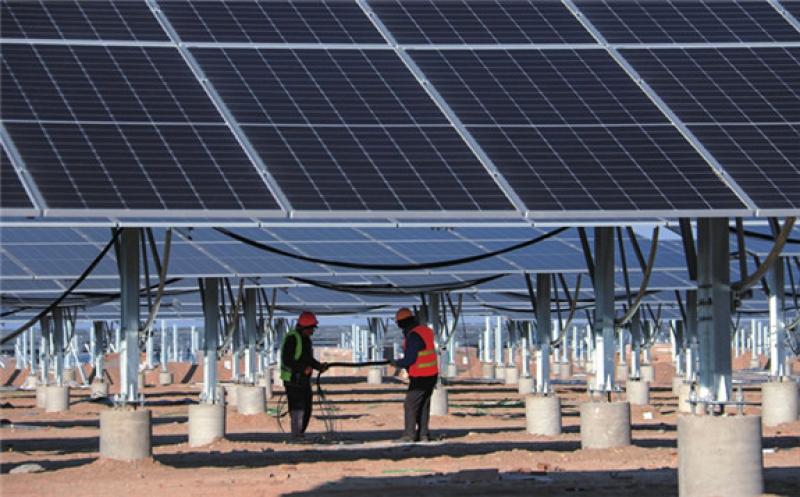Chinese President Xi Jinping has stressed fully grasping the urgency and arduousness of realizing the country's goal of peaking carbon emissions by 2030 and achieving carbon neutrality by 2060, and he called for solid implementation of decisions and arrangements made by the Communist Party of China (CPC) Central Committee, the Xinhua News Agency reported on Tuesday.

Xi made the remarks on Monday when addressing a group study session of the Political Bureau of the CPC Central Committee, which focused on striving to realize the country's "dual carbon" goal, according to Xinhua, reaffirming China's climate commitment as the country moves swiftly to carry out relevant efforts.
During the session, Xi also stressed the need to fully understand the importance of the "dual carbon" goal for the country's own development as well as for the global community and to strengthen confidence in carrying out work for the goal. The President also noted that meeting the goal is a broad and profound change, and it is not something that can be achieved easily.
In carrying out relevant work, Xi said, emissions reduction does not mean cutting production and the focus should be promoting a green transformation in economic development. He also urged against adopting a "one-size-fits-all" approach and being eager to seek quick success.
The remarks from the President underscored the country's firm commitment to reaching the "dual carbon" goal, despite the tough tasks ahead, experts said.
"This also reflects the efforts and firm determination of [China] in achieving carbon peaking and carbon neutrality goals," Han Xiaoping, chief analyst at energy industry website china5e.com, told the Global Times on Tuesday, noting the ongoing efforts in studying and carrying out relevant work for the goal.
The central and local governments have been moving swiftly to roll out a slew of measures for the "dual carbon" goal.
The State Council, the cabinet, released a five-year plan on energy conservation and emissions reduction, saying that the country will appropriately control its total energy consumption and cut the energy consumption per unit of GDP by 13.5 percent by 2025 compared with the 2020 level, to lay a solid foundation for achieving carbon neutrality, Xinhua reported on Monday.
Also, provincial-level government work reports released recently during the local two sessions have emphasized efforts to implement policies for the "dual carbon" goal and promote green transformation of social and economic development.
Given the emphasis on the "dual carbon" goal from all levels of government, more policies and measures are likely to be rolled out and implemented this year and beyond, despite economic and other pressures, analysts said, noting that efforts to both ensure steady economic growth and meet carbon emissions reduction goals are going to be top priorities.
"Economic growth must continue and consumption also must grow, but [energy consumption] cannot grow too much; How to achieve that? This will require adjustment in the industrial structure," Lin Boqiang, director of the China Center for Energy Economics Research at Xiamen University, told the Global Times on Tuesday.
For example, Lin pointed out, energy-intensive companies would be phased out and strict controls would be needed for companies with high emissions, while low-carbon consumption and a circular economy will be promoted.
While Chinese policymakers are moving to boost economic growth this year in the face of rising downward pressure, they are also rolling out innovative policies to promote both economic growth and carbon emissions reduction.
On Friday, the National Development and Reform Commission, the top economic planner, and six other government departments released a policy to carry out reforms to boost low-carbon consumption, vowing to strengthen all-round support in areas such as technology, services and policies to realize systemic energy conservation and carbon emissions reduction.